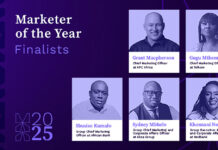South Africa has a youthful population, with more than 66% of our people below 35 years old and 41% younger than 21 years old. Marketers who want to ensure the longevity of their brands and win the consumer of the future thus need to come to grips with what the under-21s – Generation Z – want and value.
This is not just because they are the consumer market of the future, but also because they are already influencing consumer behaviour and spending patterns. Older members of Generation Z are already entering the workforce, while the generation as a whole has a significant influence on what their parents buy.
From our South African data – including data from two longitudinal studies: GfK FutureBuy and GfK Consumer Life* – we have pinpointed trends that shape Generation Z’s world. Their reality is shaped by four major shifts in the South African and global tech, political and economic landscapes:
- Born-free
Generation Z’s members only know post-apartheid democratic South Africa—their experience of apartheid is reflected in their family circumstances and what they read in the history books. This spells opportunity for them, but also pressure.
Many are the most educated in their households, and are expected to succeed and show responsibility for the rest of the family. Growing up in an age of instability, they are worried about security, unemployment and economic prosperity.
- Digital native
They are the first generation to grow up in the world of cellphones and social media. Because they are digital natives, technology is integrated into their daily lives—there is no need for them to learn or adapt. Gen Z uses significantly more free video downloads, streaming services and cloud storage than the other generations.
- Age of fluidity
Growing up in a world of change, fluidity is second nature for Generation Z consumers. They reject rigid categorisations around gender identity, sexual orientation, age and even race. For example, Jaden Smith models women’s clothes, and there are stories about teens and tweens making hundreds of thousands of dollars a year from online businesses.
- A platform to speak out
Empowered, educated and with a strong self-belief, Generation Z consumers are used to sharing their opinions and understand their power to influence the world to their emotional or functional benefit. Just look at how they are changing the country through social media-driven campaigns such as #feesmustfall and #datamustfall.
Generation Z’s outlook on life
There are many ways that South Africa’s Generation Z resembles the demographic in other markets, but one difference is that young South Africans are deeply worried about crime and lawlessness.
Seventy percent said that they are always concerned about their safety and security, which is not out of line with South Africans of all ages (72%).
Reflecting a trend in other parts of the world, Generation Z in South Africa attaches a high value to success, pleasure and individuality. Unlike Generation X – which is bound by duty and seeks social status through hard work – Generation Z wants to succeed through being enterprising.
Generation Z’s confidence, self-esteem, acceptance of change and individualism mean it doesn’t aspire to perfection, or expect it from others. However, under-21s have high expectations when it comes to instant gratification. They want products, services and entertainment to be available and accessible when they need them – anytime, any location, and on any device. They also enjoy curating the perfect experience for social media, whether they’re shopping, eating out or on holiday.
Generation Z to usher in the next shopping revolution
Brands have experienced ongoing disruption for the past 20 years as a result of the web and then the mobile web coming of age. That trend will accelerate as mobile-first Generation Z unleashes the full power of the smartphone and looks to brands to provide instant, personalised, on-the-go experiences.
Around 76% of South African Generation Z respondents told us they would be more loyal to a brand that lets them give input or help shape its products and services, compared to 69% of all South African respondents. And 22% said they like fully automated products because they can be personalised to their needs (versus 14% of all South Africans).
They also have more control over their shopping experience and 74% of Generation Z said this makes them less loyal to brands as they feel the need to shop around more to find best value.
For 76%, online reviews from other shoppers/users influence shopping decisions. Despite the move online, 59% of our Generation Z respondents still reported going to a store to buy something they viewed on a device, compared to 30% who purchased online.
Strategic recommendations
As our research shows, brands will need to relook some of their approaches to ensure that they remain relevant as Generation Z comes of age and its spending power grows. Here are some implications of our research:
- Shift from offering new things to buy, to inspiring new things to do: Wrapping a great experience – be it digital or real-world – around a product can help inspire loyalty. New experiences such as virtual and augmented reality find favour among Generation Z consumers.
- Shift from telling your story to starting a conversation about their story: Interact with young customers. Listen to them and learn from them. They love to be involved and continuously look for the ability to customise or personalise what they get. Win them over by using the information they provide to tailor their experiences and demonstrate that you understand them.
- Shift from telling your story, allowing them to tell it for you: Generation Z consumers use social media to get opinions while shopping, and they make decisions based on feedback from their network. That makes their feedback and endorsement your most powerful sales tool.
- Shift to true disruptive innovation: Design experiences knowing Generation Z is constantly connected and that your brand is just one of many options. Design e-commerce experiences with a mobile-first mind-set and keep marketing messages casual and to-the-point with instant calls to action or rewards.
*South African data has been analysed from two longitudinal studies: GfK Consumer Life, conducted across 27 countries worldwide uncovering consumers’ values, lifestyles and aspirations; and GfK FutureBuy, a macro-economic study into the purchase habits of consumers across 25 countries.
About GfK
GfK is the trusted source of relevant market and consumer information that enables its clients to make smarter decisions. More than 13,000 market research experts combine their passion with GfK’s long-standing data science experience. This allows GfK to deliver vital global insights matched with local market intelligence from more than 100 countries. By using innovative technologies and data sciences, GfK turns big data into smart data, enabling its clients to improve their competitive edge and enrich consumers’ experiences and choices. www.gfk.com/en-za/
About Rachel Thompson, Insights Director at GfK South Africa
Rachel Thompson has 16 years of experience in market research, working first for Research International and then moving to GfK South Africa in 2009. She has experience across a wide range of research disciplines and a strong interest in innovation. Rachel has an Honours degree in Economics from the University of Natal.
























































































